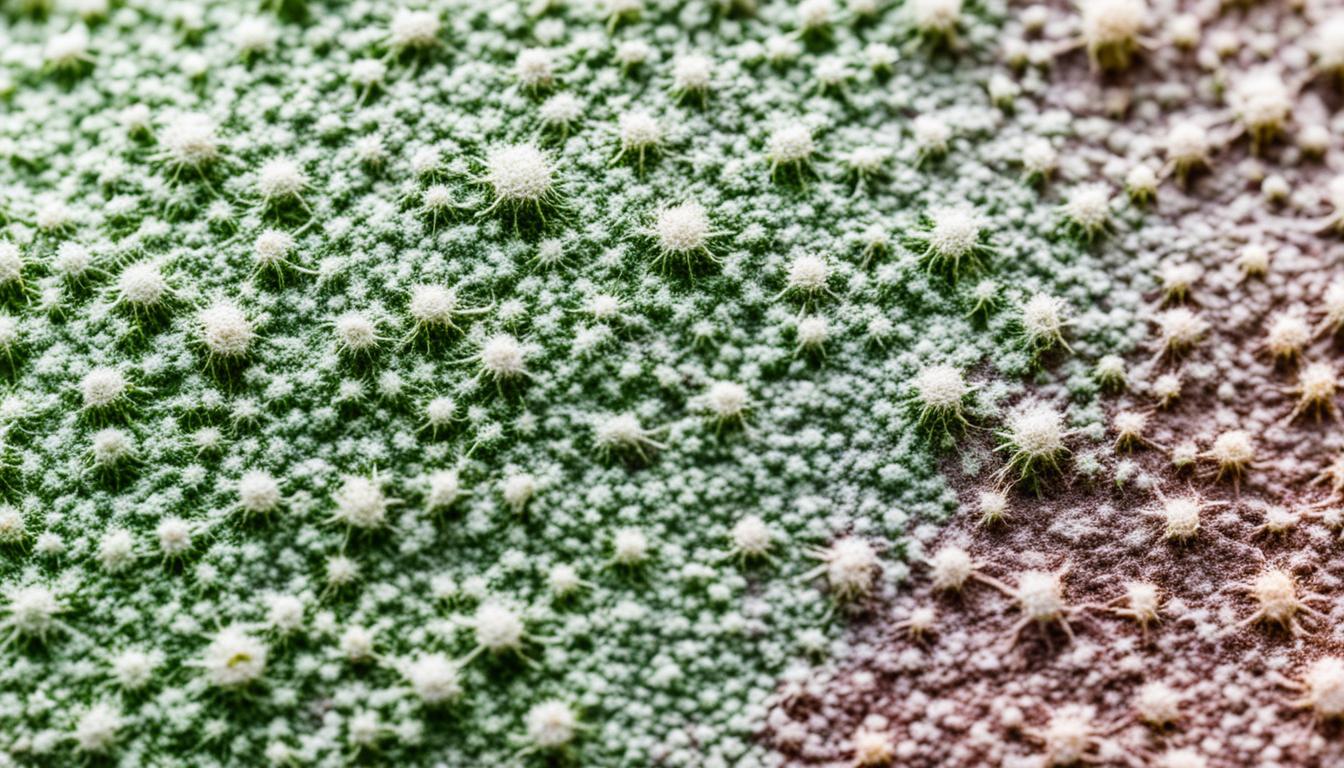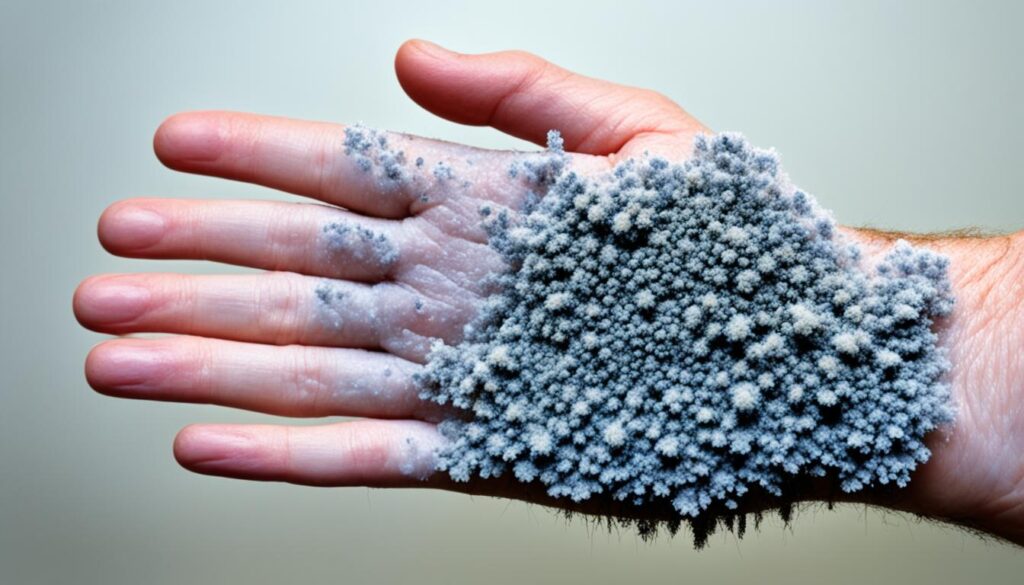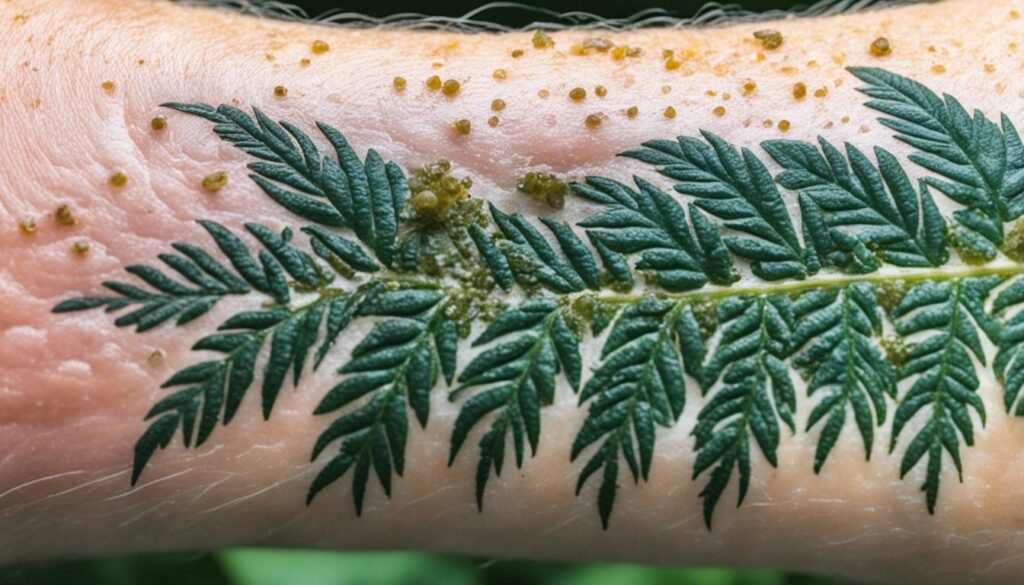
Fungal Mold Skin Infection Florida: Causes & Care
Fungal mold skin infection is a common condition that affects many people in Florida. The warm and humid climate of the state creates an ideal environment for the growth and spread of fungi, leading to skin infections. Understanding the causes of these infections and implementing proper care strategies is essential for managing and treating the condition effectively.
There are several factors that contribute to the development of fungal mold skin infections in Florida. These include exposure to mold-infested environments, such as damp buildings or outdoor areas with high levels of moisture. Individuals with weakened immune systems, excessive sweating, or pre-existing skin conditions are also more susceptible to these infections.
Caring for fungal mold skin infections involves a multifaceted approach. Prompt diagnosis and treatment by a healthcare professional are crucial to prevent the infection from spreading and causing further complications. Treatment may include antifungal medications, topical creams, and proper wound care. Additionally, practicing good hygiene, keeping the affected areas clean and dry, and avoiding tight-fitting clothing can help manage the condition.
It is important to note that fungal mold skin infections in Florida can be recurrent, especially if the underlying environmental factors are not addressed. Proper mold remediation and prevention measures, such as controlling moisture levels in buildings and homes, are essential to reduce the risk of reinfection.
Key Takeaways:
- Fungal mold skin infection is common in Florida due to the warm and humid climate.
- Exposure to mold-infested environments and weakened immune systems increase the risk of infection.
- Prompt diagnosis and treatment are crucial for managing fungal mold skin infections.
- Treatment may involve antifungal medications, topical creams, and proper wound care.
- Preventive measures, such as practicing good hygiene and controlling moisture levels, can help prevent recurrent infections.
Understanding Fungal Mold Skin Infection
In order to effectively manage and treat fungal mold skin infection, it’s important to have a clear understanding of the condition. Fungal mold skin infection, also known as dermatomycosis, is a common skin condition caused by various types of fungi. These fungi thrive in warm, humid environments, which makes Florida an ideal breeding ground for such infections.
There are several different types of fungi that can cause fungal mold skin infection. The most common types include dermatophytes, yeasts, and molds. Dermatophytes are responsible for most cases of skin infections, while yeasts and molds are less common but can also cause similar symptoms.
Environmental factors play a crucial role in the growth and spread of fungal mold skin infection. Florida’s warm and humid climate provides ideal conditions for fungal growth, making the state particularly susceptible to these types of skin infections. In addition to climate, poor hygiene, excessive sweating, and weakened immune systems can also increase the risk of developing fungal mold skin infection.
Recognizing the signs and symptoms of fungal mold skin infection is crucial for prompt diagnosis and treatment. Common symptoms include:
- Red, itchy patches of skin
- Rash with well-defined edges
- Blisters or sores
- Pain or discomfort
- Scaling or peeling skin
- In some cases, fungal mold skin infection can also lead to nail infections, causing thickened or discolored nails.
If you notice any of these symptoms, it’s important to seek medical attention for proper diagnosis and treatment. Delaying treatment can lead to further complications and a longer recovery time.
Early detection and prompt treatment are important for successful management of fungal mold skin infection. If left untreated, the infection can spread and cause more severe symptoms. Seeking medical advice and adhering to the prescribed treatment plan is essential for a full recovery.

Managing Fungal Mold Skin Infection in Florida
When it comes to fungal mold skin infection in Florida, proper management is essential for reducing symptoms, promoting healing, and preventing recurrence. By adopting preventive measures and utilizing appropriate treatment options, individuals can effectively deal with this condition. Here, we discuss various strategies and approaches to managing fungal mold skin infection in Florida.
Preventive Measures
- Maintaining Clean and Dry Skin: To prevent fungal mold skin infection, it is crucial to keep the affected areas clean and dry. Regularly wash the skin using mild soap and lukewarm water, and thoroughly dry it afterward. Pay attention to areas prone to moisture, such as between the toes or under the breasts.
- Avoiding Humid Environments: Fungi thrive in warm and humid environments. Be mindful of the climate and take necessary precautions, such as using air conditioning or dehumidifiers, to reduce excessive moisture in your surroundings.
- Wearing Appropriate Clothing: Choose breathable fabrics that allow air circulation to the skin. Avoid tight-fitting clothes that trap moisture, making it easier for fungi to grow.
- Using Antifungal Powders or Sprays: Apply antifungal powders or sprays to areas susceptible to fungal infections, such as feet or groin. These products help keep the skin dry and create an unfriendly environment for fungi.
Treatment Options
When managing fungal mold skin infection in Florida, various treatment options are available, depending on the severity and type of infection. It is recommended to consult a healthcare professional for the most suitable approach. Common treatment methods include:
- Topical Antifungal Medications: These medications come in the form of creams, ointments, or sprays, and are applied directly to the affected area. They work by killing or inhibiting the growth of fungi, effectively treating the infection.
- Oral Antifungal Medications: In cases of severe or persistent fungal mold skin infection, oral antifungal medications may be prescribed. These medications work systemically to eliminate the infection from within.
- Combination Therapy: In certain instances, healthcare professionals may recommend a combination of topical and oral antifungal medications for optimal results.
- Maintaining Proper Hygiene: Good hygiene practices, such as regular bathing, changing clothes frequently, and using clean towels and bed linens, can support the effectiveness of treatment and prevent reinfection.
It is essential to follow the prescribed treatment plan and complete the full course of medication, even if symptoms improve before completing the treatment. This helps ensure complete eradication of the infection and reduces the risk of recurrence.
By managing fungal mold skin infection in Florida through preventive measures and appropriate treatment options, individuals can alleviate symptoms, promote healing, and minimize the impact of this condition on their daily lives.

Conclusion
In conclusion, fungal mold skin infection is a common concern in Florida, and understanding its causes and implementing proper care strategies is crucial for managing the condition effectively. By being aware of the contributing factors and taking preventive measures, individuals can significantly reduce the risk of acquiring fungal mold skin infections. Maintaining good hygiene practices and seeking professional help when needed are vital steps in preventing recurrent infections.
It is important to be proactive in addressing any mold-related concerns in your environment. If you suspect mold growth or potential fungal mold skin infection in your home or workplace, do not hesitate to contact Fix Mold Miami at 305-465-6653. Their team of experts can provide a thorough mold assessment and offer appropriate solutions to ensure a safe and healthy environment.
Remember, early detection and timely intervention are key to managing fungal mold skin infection effectively. By prioritizing awareness, prevention, and care, you can protect yourself and your loved ones from the adverse effects of fungal mold skin infections in Florida.




